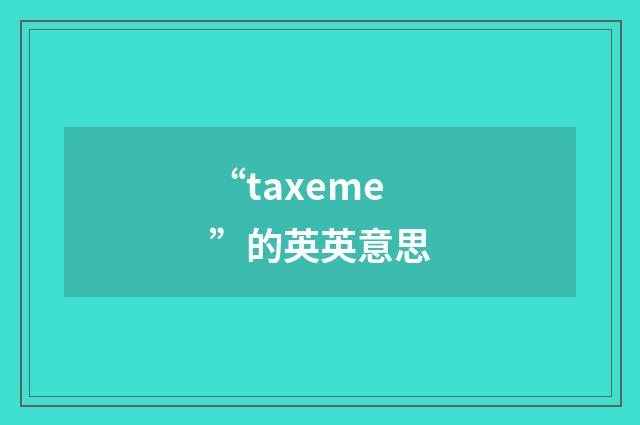| 单词 | taxeme |
| 释义 | taxeme Linguistics.|ˈtæksiːm|
[f. Gr. τάξ-ις arrangement + -eme.]
A unit of syntactic relationship, esp. one that cannot be further analysed or lacks meaning by itself, such as word order or stress. Hence taˈxemic a.; taˈxemics n. pl. (const. as sing.), the study and description of language in terms of taxemes.
1933L. Bloomfield Lang. x. 166 A simple feature of grammatical arrangement is a grammatical feature or taxeme. A taxeme is in grammar what a phoneme is in the lexicon—namely, the smallest unit of form. 1943[see tagmeme 2]. 1947Taxemics [see tagmemics n. pl.]. 1950Webster Add., Taxemic. 1967M. Schlauch Language vi. 127 A taxeme, taken by itself, may have no meaning; when one or more taken together do have meaning the combination is called a tagmeme (for instance, duch + ess). Ibid. 128 It would seem that the terminology of taxemics requires further study. 1970G. C. Lepschy Survey Structural Linguistics v. 89 Taxemes occur in conventional grammatical arrangements. |

英语词典包含277258条英英释义在线翻译词条,基本涵盖了全部常用单词的英英翻译及用法,是英语学习的有利工具。
相关内容11:
相关热词搜索:taxeme英英词典英英释义英语词汇意思用法释义英语
